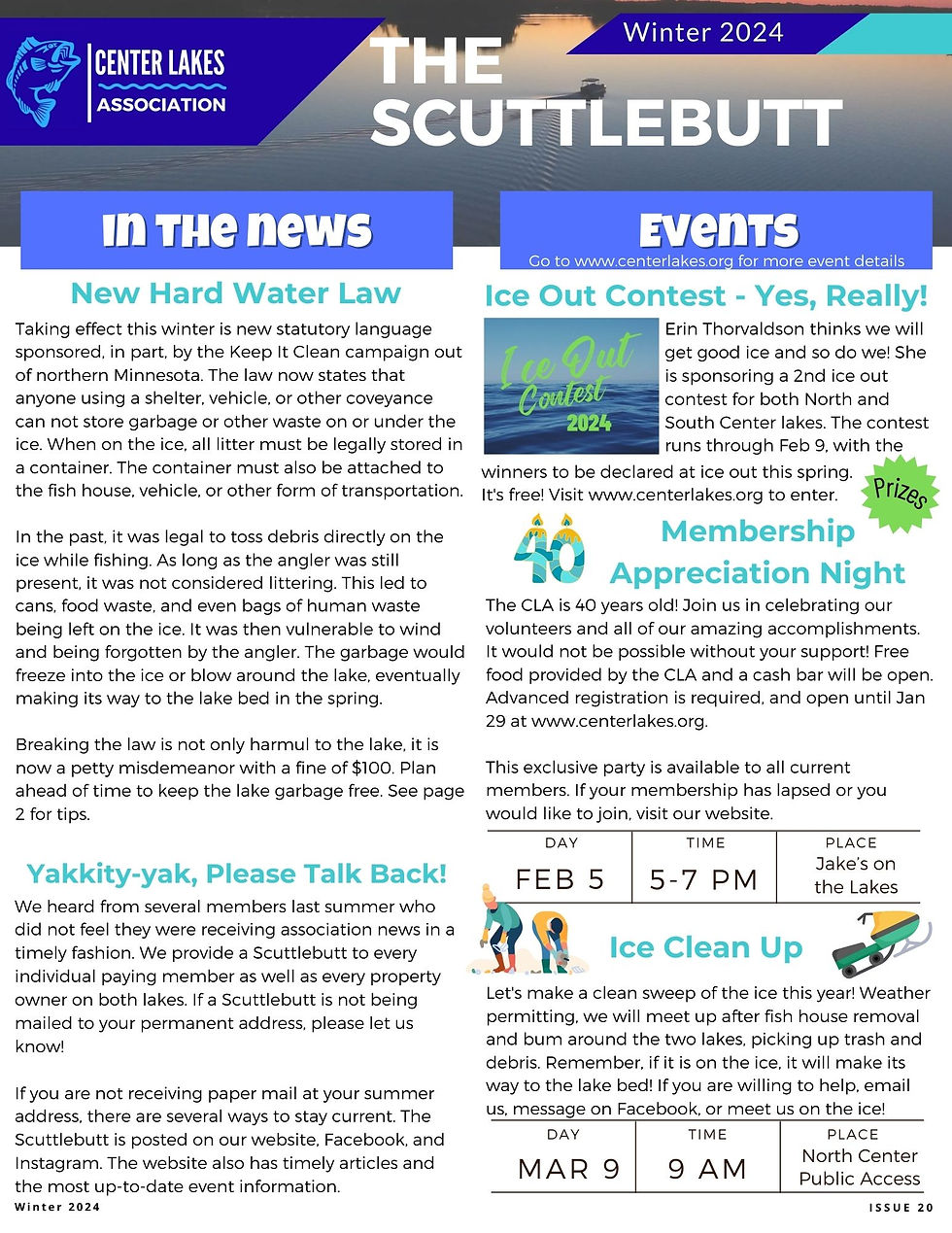MN DNR 2022 Survey Results
- Jonathan Schoen
- Mar 18, 2022
- 2 min read

Jeff Forester and the Minnesota DNR have shared the results of the survey done earlier this year. See a summary from Jeff and the full results in the PDF below.
Key Findings:
74% of respondents reported current problems with aquatic plants on Minnesota Lakes.
77% of those lakes report they are organizing to combat the problems within their lake communities.
While 80+% of lake associations feel that the city, county or state should be responsible for maintaining a healthy plant community in Minnesota lakes, almost 90% report that homeowners and lake associations have had to be responsible for it.
Only 31% of respondents feel the DNR is proactively working to solve nuisance plant issues.
While 92% have sought to gain permits for their own treatments, less than 15% of the total feel the DNR has organized itself efficiently to address their concerns.
MLR's mission is to protect Minnesota's lake and river heritage for current and future generations. It is clear from this survey that one of the key tasks is to build more transparent, functional, efficient and productive civic partnerships between the MN DNR and lake associations.
Some progress has already been made. Last session MLR successfully lobbied to increase the MN DNR's Invasive Aquatic Plant Management Grants for lake associations to $850,000, and then worked with the MN DNR to create different levels and requirements within that grant.
We are lobbing for an increase in the grant funding for this important work.
But in addition, MLR will continue to work to build productive civic partnerships between MLR and DNR leadership and regional DNR and lake associations.
Civic Standards will guide MLR efforts:
All those impacted by a problem help define the problem.
All stakeholders are accountable for contributing resources (leadership/time, knowledge, constituencies & dollars) to solve the problem.
All stakeholders are engaged in decision-making and policy-making that contributes to the common good.
This will be an ongoing process and will be a focus of MLR's efforts into the future.
Thank you for all you do for our lakes and please stay in touch.
Jeff Forester
















